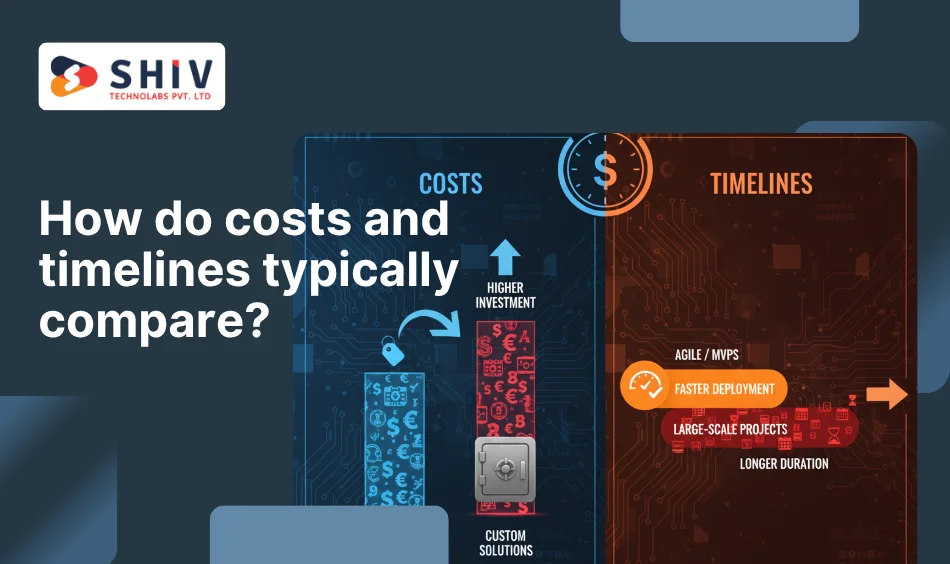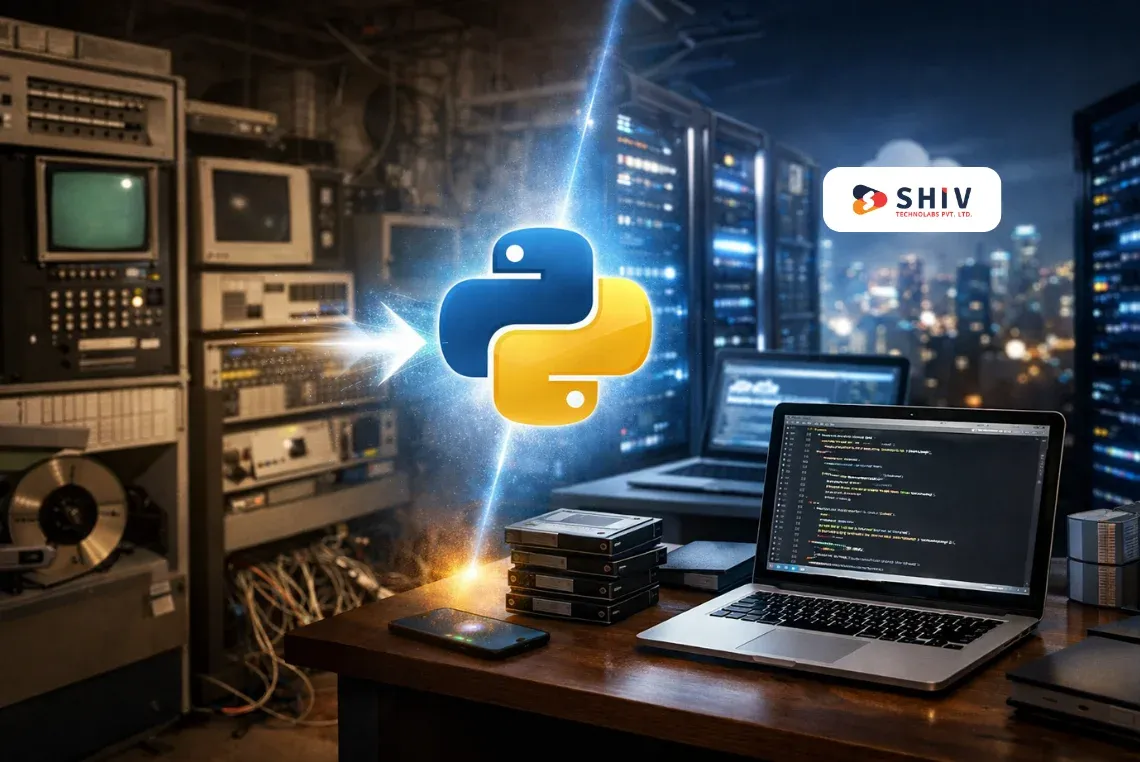Table of Contents
Modern teams often compare Flutter vs Angular before green-lighting web projects and hiring key specialists. Many companies also seek web app development services to validate stack choices, shape scope, and reduce delivery risks. The right call affects build speed, SEO paths, and long-term upkeep across devices.
This guide explains where each framework fits and how its strengths differ in practice. You will see trade-offs across performance, SSR, developer workflow, bundle size, and hosting patterns. We also answer key questions on crawlability, content rendering, and team skills. Finally, you get a practical checklist for confident decision-making.
What is Flutter, and how does it deliver web apps?
Flutter is a Google UI toolkit that compiles Dart and draws widgets directly in the browser. Teams ship SPAs or PWAs with consistent visuals across platforms, since Flutter paints its own layer instead of the DOM. This approach favors design precision and unified styling for complex, branded interfaces.
What is Angular, and where does it shine on the web?
Angular is a Google framework built around TypeScript, modules, and a strong CLI for scaffolding and builds. It includes a mature router, reactive forms, and dependency injection, which support large, structured codebases. Teams value its conventions, guardrails, and broad package ecosystem for testing, linting, and release management.
How do Flutter and Angular differ for web app development?
Flutter renders its UI through a canvas-style engine, giving tight control and consistent visuals across browsers. Angular works with the DOM and templates, which pair well with SSR or prerender strategies for early content paint. Bundle size, code splitting, asset budgets, and CDN policies influence first load. Hosting choices differ, too, especially when teams need SSR, caching, or static export workflows.
Flutter vs Angular – Web Feature Snapshot
| Area | Flutter (Web) | Angular (Web) | Notes |
|---|---|---|---|
| Rendering model | Engine-drawn widgets via Canvas/WebGL | DOM-based with templates | Changes first paint and styling control |
| SSR/Prerender | Limited, mostly static hosting | Angular Universal supports SSR/prerender | Improves crawlability and early content |
| Bundle size tendencies | Larger initial payload | Granular code splitting options | Budgets help first load speed |
| PWA support | Built-in service worker support | Angular PWA tooling available | Similar offline patterns possible |
| Routing | Navigator APIs | Angular Router | Both support nested routes |
| State management | Provider, Riverpod, BLoC | RxJS, NgRx, signals | Mature patterns on both sides |
| Testing tools | flutter_test, integration_test | Jest/Karma, Cypress | Pick what matches team skills |
| SEO handling | Harder for public pages | Strong with SSR/prerender | Affects discovery and reach |
| Accessibility aids | Widget-level responsibility | ARIA in templates and DOM tools | DOM focus eases audits |
| Hiring availability | Strong mobile crossover | Broad web and enterprise pool | Varies by region and role seniority |
Which framework gives better runtime performance for the web?

Both stacks can feel fast when teams shape assets and caching early. Angular often ships smaller first loads with disciplined code splitting and strong tree shaking. Flutter can feel very quick after the first paint, since its engine controls every pixel. For Flutter vs Angular for frontend development, weigh initial payloads, CDN caching, and interaction speed. If repeat visits dominate, aggressive caching helps both. If most users land once from search, smaller first loads matter more.
What about SEO, SSR, and content discovery needs?
Angular supports server-side rendering and prerendering through Angular Universal. This path helps crawlers see content immediately and improves early paint for public pages. Flutter Web can serve indexable content, but it typically needs careful prerender planning and static content strategies. If search traffic drives growth, Angular’s SSR stack offers a clearer route. If your app focuses on authenticated dashboards, Flutter’s approach fits well without special SEO work.
How do the developer workflows and learning curves compare?
Angular centers on TypeScript, modules, and a CLI that scaffolds routes, components, and tests. Teams familiar with TS and the browser DOM usually ramp quickly. Flutter uses Dart and a widget-first model with hot reload that speeds UI iteration. Designers often like Flutter’s tight control over visuals and animation. If your engineers live in the web ecosystem today, Angular may feel familiar. If your team ships mobile with Flutter, crossover benefits are strong.
Do ecosystem and community size affect delivery risk?
Angular offers a long-standing package library, a stable release cadence, and many tutorials. Its community covers enterprise needs from testing to CI guidance. Flutter’s ecosystem is broad across mobile and desktop, with growing web packages. You will find active maintainers and helpful examples, though web-specific plugins vary by need. For risk control, shortlist critical packages early, check maintenance signals, and plan fallback options.
What use cases fit each framework best?
Pick based on surface area, SEO targets, and UI parity needs. Angular fits public sites, content-heavy apps, and large teams that prefer strict patterns. Flutter shines when visual precision, cross-platform parity, and shared UI matter.
Good fits to consider:
- Data-heavy dashboards
- Admin portals with complex forms
- Marketing sites with strong SEO targets
- Cross-platform UI parity needs
- PWAs with offline support
- Internal tools with fast iteration
When should a team pick Flutter for the web?
Choose Flutter when a single design language spans mobile and web with near-identical visuals. The widget model gives designers fine control, while hot reload supports quick UI changes. If your roadmap includes Android, iOS, and web, a shared component set reduces context switching. Teams also like Flutter when animation polish and branded motion play a central role.
Signals that point to Flutter:
- Shared UI across mobile and web
- Design-heavy, pixel-tight components
- Consistent look across browsers
- Strong widget-first approach
- Existing Flutter mobile codebase
- Rapid UI iteration with a single codebase
When should a team pick Angular for the web?
Choose Angular when SEO, SSR, and structured modules matter from day one. The CLI, router, and forms give clear patterns for large teams and strict reviews. Angular favors projects that need predictable builds, lint rules, and well-defined layers. If executives expect strong search reach and frequent content updates, Angular provides dependable SSR paths.
Signals that point to Angular:
- SEO, SSR, or prerender needs
- Large, multi-team codebases
- TypeScript standards and lint rules
- Mature forms, routing, DI out of the box
- Enterprise design systems
- Long-term maintainability with strong conventions
How do costs and timelines typically compare?

Budget and schedule depend on team skills, app scope, and test depth. Angular teams with strong TypeScript habits often move quickly on SSR and SEO tasks. Flutter teams gain speed when they reuse mobile widgets and brand components on the web. Both paths benefit from early performance budgets, steady CI checks, and a clear design system. Plan extra time for integrations, analytics, and security reviews across environments.
Cost & Timeline Drivers
| Driver | Flutter (Web) | Impact | Angular (Web) | Impact | Notes |
|---|---|---|---|---|---|
| Hiring market | Strong mobile crossover helps staffing | More mobile-first talent available | Broad web and enterprise talent | Easier to scale teams | Compare local rates and ramp needs |
| Reuse from mobile | High reuse of widgets and themes | Faster delivery for Flutter shops | Limited mobile reuse | More design rebuild work | Cuts design time for Flutter teams |
| SSR setup | Limited or custom work | Less SEO-friendly | Angular Universal gives a head start | Improved indexing and reach | Matters for search reach |
| Testing depth | Widget and integration tests | Strong UI verification | Unit, integration, and e2e patterns | Full-stack web testing | Pick tools your team knows |
| Design system setup | Strong single codebase story | Unified visuals across devices | Works well with web tokens | Consistent enterprise theming | Align tokens and typography early |
| CI/CD effort | Similar pipelines across targets | Smooth multi-platform delivery | Mature web build steps | Stable incremental releases | Add preview builds for reviews |
| Performance tuning | Asset budgets and caching help | Better first load with constraints | Code splitting and budgets help | Optimized initial loads | Track first load and interactivity |
| SEO tasks | Static content planning required | Extra work for visibility | SSR/prerender paths are clear | Better organic reach | Match content model to goals |
For frontend development, which choice helps teams move faster?
Speed comes from fit. Angular gives patterns for routing, forms, and SSR that suit content-heavy apps. Teams that live in TypeScript often build pages and modules at a steady pace. Flutter moves quickly when the same squad ships mobile and web with shared widgets. If your roadmap spans three platforms, one component set can trim review cycles and styling churn.
Is Flutter good for web development today?
Yes, Flutter is good for web development has a practical answer. It suits apps where visuals, motion, and parity with mobile matter more than crawlable content. Authenticated dashboards, internal tools, and branded portals feel like natural targets. Plan for asset budgets, careful A11Y reviews, and static strategies for any public pages. With those guardrails, teams can deliver polished results on predictable timelines.
Is Angular better than Flutter for web apps?
The right call depends on goals. Angular fits public sites, content hubs, and large teams that value structure and SSR paths. Strong routing, forms, and a CLI help squads shape features without confusion. Flutter fits visual parity and multi-platform demands. If search reach and early content paint drive growth, Angular offers a clearer route. If cross-platform design leads, Flutter stands out.
What decision checklist can I use before kickoff?
Use this short checklist before you write the first ticket. It aligns teams on content, speed, and long-term care. Review answers with product, design, and engineering leads. Document trade-offs and share them with sponsors for clear sign-off.
Checklist:
- SEO or SSR required for core pages?
- Team’s language skills today: TypeScript or Dart?
- Reuse from an existing Flutter mobile app?
- Design system maturity and token plan?
- Content indexability needs and sitemap scope?
- First-load target and caching strategy?
- Accessibility goals and audit owner?
- Hiring plan for care and future releases?
Conclusion
Both Flutter and Angular can deliver strong web apps when the stack matches product goals and roadmap. Pick Flutter when design parity across mobile and web matters, and shared components reduce rework and QA drift. Choose Angular when public pages demand fast first paint, SSR paths are required, and teams need clear patterns. Plan budgets for performance, testing, accessibility, and analytics. Assign ownership for content, releases, and long-term care to prevent avoidable regressions.
If you want expert guidance from discovery to rollout, Shiv Technolabs can guide your evaluation and delivery. For cross-platform UI with quick iteration and one component set, see our Flutter app development services. For structured modules, SEO support, and predictable governance at scale, review our Angular development services. We tailor plans to your team’s current skills and target users. With the right approach, your squad ships faster, reduces risk, and supports future growth.
FAQs
Q1. Can Flutter handle SEO for public pages?
Yes, with careful prerender plans and a clear content strategy for key routes.
Q2. Does Angular require SSR for good SEO?
SSR or prerender helps crawlers and first paint, especially for public content.
Q3. Which is better for PWAs?
Both support service workers and offline flow; pick based on app goals.
Q4. Which suits large teams with strict standards?
Angular’s conventions, TS rules, and CLI fit multi-squad delivery.
Q5. Can I share code between mobile and web?
Flutter reuses widgets and themes well; Angular focuses on the web stack.






















